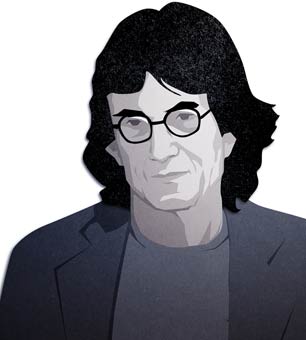Part of the Series
Disposable Futures
 Henry A. Giroux. (Image: Jared Rodriguez / Truthout)English and Cultural Studies professor, Henry A. Giroux, talks about the challenges facing the Left – or all who care about democracy and the future of the common good – in a neoliberal political economy.
Henry A. Giroux. (Image: Jared Rodriguez / Truthout)English and Cultural Studies professor, Henry A. Giroux, talks about the challenges facing the Left – or all who care about democracy and the future of the common good – in a neoliberal political economy.
To see more articles in the Disposable Futures series, click here.
To read more articles by Henry A. Giroux and other authors in the Public Intellectual Project, click here.
We’re living in a time of extremes: extreme weather conditions, extreme political polarization, and extreme power and income inequality. How did we get to this point? It certainly didn’t happen overnight. Rather, over the course of the last 30 years, the erosion of social contract the New Deal ushered in has reached a stage such that the United States of America is no longer a democratic republic – or a polity concerned with a shared future.
Henry A. Giroux, a professor of English and Cultural Studies at McMaster University in Hamilton, Ontario, Canada has written extensively on the way in which the political economy has been reconfigured from one that guaranteed citizens a social safety net and promoted paths to a middle class way of life, to a system where a neoliberal oligarchy has accumulated a preponderance of wealth and power that makes democracy impossible, while simultaneously pushing politicians to chloroform the New Deal and Great Society era reforms. The result of this long march to change the fundamental agreement citizens had with their government is a middle and lower class that are compliant, afraid, desperate, and powerless in society- or dispoable. In other words, neoliberal ideologues have squashed democratic movements that use political processes to create a more just and more economically equitable society.
This political and economic movement, according to Giroux, started with the presidency of Ronald Reagan and Margaret Thatcher’s Conservative Party in the United Kingdom. Both pushed an agenda to decrease role of the social safety net in society and promote the belief that there is no society (or social class); only individuals. This extreme form of individualism coupled with the dismantling of the welfare state for the middle and lower classes (yet, at the same time, strengthening socialism for the wealthy and the powerful) has created a political climate where people are afraid to question authority – except when such questioning comes from the right and is directed at the welfare state, liberals and progressives. Certainly, there’s been a push back against the forces of neoliberalism. The Occupy Wall Street movement was a start, and many like Jon Stewart, John Oliver, and Stephen Colbert have channeled political critique into a form of “fake journalism” that is highly entertaining, but inadequate alone for the long game of political change.
Many of these issues are addressed in a longer form by C.J. Polychroniou in his interview with Henry Giroux, but in this wide-ranging Truthout Interviews, Giroux touches on some points he made in his discussion with Polychroniou and also focuses on social media, democracy, and the political left.
Join us in defending the truth before it’s too late
The future of independent journalism is uncertain, and the consequences of losing it are too grave to ignore. To ensure Truthout remains safe, strong, and free, we need to raise $31,000 in the next 48 hours. Every dollar raised goes directly toward the costs of producing news you can trust.
Please give what you can — because by supporting us with a tax-deductible donation, you’re not just preserving a source of news, you’re helping to safeguard what’s left of our democracy.